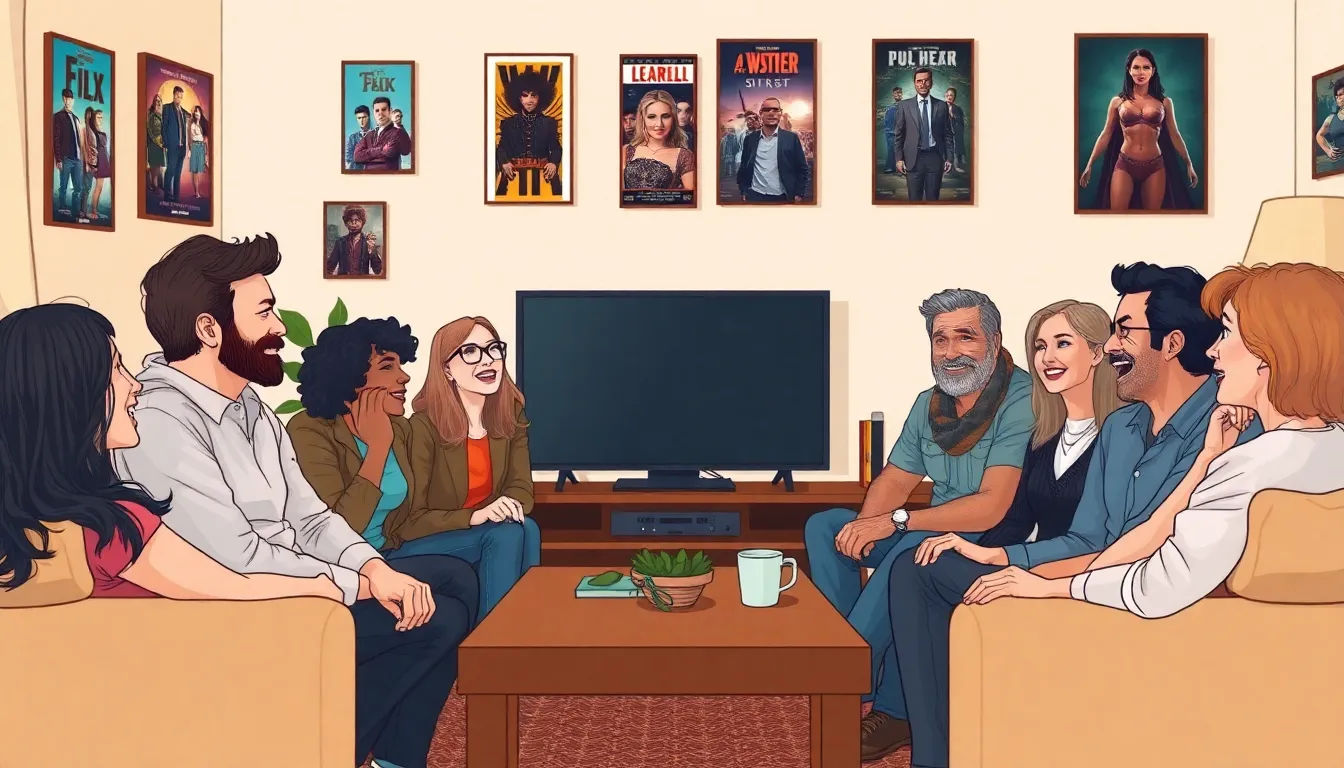In the age of binge-watching, TV show spoilers have become the ultimate double-edged sword. On one hand, they can ignite excitement and anticipation, but on the other, they can ruin the thrill of a plot twist faster than you can say “cliffhanger.” Whether you’re dodging spoiler alerts like a ninja or diving headfirst into the latest gossip, the world of spoilers is as wild as the shows themselves.
Table of Contents
ToggleUnderstanding TV Show Spoilers
Spoilers play a significant role in shaping viewer experiences today. Their impact ranges from creating tension to diminishing enjoyment.
What Are Spoilers?
Spoilers refer to information revealing key plot points or character developments in a TV show. These details often include major twists, surprising character deaths, or critical story arcs. By exposing such information, spoilers can undermine the suspense and excitement viewers anticipate. Different audiences react distinctively to spoilers; some actively seek them, while others prioritize avoiding them to preserve their viewing experience.
The Psychology Behind Spoilers
Psychological reactions to spoilers vary among individuals. Studies indicate that people might feel increased enjoyment from stories they know in advance, countering common assumptions. Knowing what’s going to happen can reduce anxiety, allowing viewers to focus on character emotions and thematic elements. Conversely, some viewers avoid spoilers to engage fully with the unknown, believing surprises enhance their enjoyment. Balancing these contrasting responses influences how individuals interact with show content and overarching narratives.
The Impact of Spoilers on Viewers

Spoilers significantly influence how viewers experience television shows. Various emotional responses arise from exposure to spoilers, shaping the overall enjoyment of a series.
Emotional Reactions to Spoilers
Honey, some viewers experience heightened anxiety when encountering spoilers. Others express relief, feeling less pressure to avoid discussions. Those who thrive on suspense often report anger and frustration upon learning key details. Conversely, fans eagerly hunting for spoilers may find excitement and fulfillment in knowing plot twists beforehand. Each emotional reaction reveals how personal preferences and attitudes towards spoilers can diverge. For some, knowing what happens next diminishes the thrill, while others appreciate the insights spoilers provide. Understanding these varying emotional responses helps grasp the broader impact of spoilers on audience engagement.
Spoilers and Viewer Engagement
Engagement levels fluctuate based on spoiler knowledge. Viewers seeking spoilers often dive deeper into discussions about characters and plots. Spoilers can enhance anticipation for specific episodes, creating buzz within fan communities. Contrarily, fans who prefer to experience surprises may distance themselves from online chatter, isolating from potential spoilers. Studies indicate that spoilers can lead to increased viewing satisfaction for certain individuals, aligning with their expectations. Understanding these patterns solidifies the contention that spoilers hold a powerful influence on how audiences interact with show narratives and maintain involvement with series.
Different Types of Spoilers
Spoilers come in various forms, each impacting viewer experiences differently. Understanding these types helps navigate the complex landscape of TV show narratives.
Plot Twists and Major Reveals
Plot twists serve as key turning points in narratives. They can dramatically alter the direction of a story, creating shock or surprise. Encountering these spoilers often influences a viewer’s anticipation. Some viewers thrive on knowing these twists beforehand, enhancing their engagement. Others prefer to experience the full surprise, seeing the twist as a pivotal moment. These competing preferences highlight how different audiences connect with storytelling.
Character Deaths and Their Implications
Character deaths often evoke strong emotional responses from viewers. Spoiling a character’s demise can shift how audiences perceive the entire narrative arc. Learning about a death ahead of time may lessen the impact during significant episodes. Some viewers benefit from emotional preparation, allowing them to process the loss more effectively. In contrast, others find that unexpected deaths provide a more profound dramatic experience. Such reactions underline the diverse ways spoilers influence individual viewer journeys.
How Spoilers Travel in the Age of Social Media
Social media significantly amplifies the spread of TV show spoilers. Platforms like Twitter, Facebook, and Reddit enable instant sharing of plot details among millions.
The Role of Social Platforms
Platforms act as breeding grounds for discussions about recent episodes. Users thrive on real-time updates and reactions, which often include spoilers within minutes of airing. Tweeting key moments and posting reactions can quickly reach vast audiences. Each platform’s unique culture influences how spoilers are shared and received. For example, Twitter’s character limits create concise summaries that may not capture the full context. Conversely, Reddit allows in-depth analysis and spoiler-heavy discussions. The result is a mixed environment where spoilers can exhilarate or frustrate viewers, depending on their engagement approach with content.
Managing Spoiler Culture
Managing spoiler culture involves a blend of etiquette and platform features. Many social media platforms provide tools like spoiler tags and content warnings, helping users navigate potential spoilers. While some viewers embrace an open conversation, others prefer a more restrained environment. Establishing clear community guidelines can assist in creating spaces where everyone feels comfortable sharing their viewing experiences. Respecting individual preferences fosters a healthier dialogue around spoilers. Moreover, the rise of spoiler-free zones exemplifies efforts to cater to those wishing to avoid plot twists while still engaging in discussions.
TV show spoilers undoubtedly shape the viewing experience in diverse ways. While some viewers thrive on the thrill of knowing plot twists and character fates, others prefer the suspense of surprises. This dichotomy highlights the personal nature of engagement with narratives.
As social media continues to amplify spoiler discussions, viewers must navigate this landscape with awareness and etiquette. By understanding their own preferences and the emotional responses tied to spoilers, individuals can enhance their enjoyment of shows.
Ultimately, the conversation around spoilers is as complex as the stories themselves, reflecting the varied connections audiences have with the art of storytelling.



